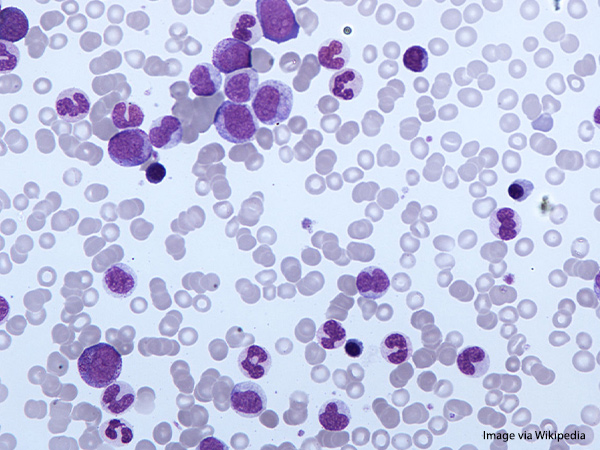A New Treatment for Chronic Myeloid Leukemia Resistant to Standard Therapies
THE FDA GRANTED ACCELERATED APPROVAL TO A TARGETED THERAPY FOR PATIENTS WITH CML RESISTANT TO OTHER THERAPEUTICS
The U.S. Food and Drug Administration (FDA) approved the drug asciminib (Scemblix) for certain patients with Philadelphia chromosome-positive (Ph+) chronic myeloid leukemia (CML).
The oral drug asciminib is a type of tyrosine kinase inhibitor (TKI). It blocks the abnormal protein BCL-ABL produced by leukemia cells containing the Philadelphia chromosome, a genetic alteration to chromosome 22 that occurs when it switches pieces with chromosome 9. Most individuals with CML carry the Philadelphia chromosome genetic alteration. Asciminib helps prevent cancer cells from growing and may trigger their death.

Asciminib was granted accelerated approval for patients with Ph+ CML in chronic phase who have received previous treatment with two or more tyrosine kinase inhibitors. It was also approved for adult patients with Ph+ CML in chronic phase carrying the T315I mutation that is associated with resistance to most current TKIs.
A multicenter, randomized, active-controlled, open-label clinical trial evaluated the efficacy of the therapeutic in 233 patients with Ph+ CML who were previously treated with two or more TKIs. Patients received either asciminib or standard therapy with the TKI bosutinib (Bosulif). Efficacy was assessed by measuring the DNA encoding for the aberrant BCR-ABL protein. A major molecular response, defined as a decrease under a certain threshold, was observed in 25 percent of patients who received asciminib compared to 13 percent of patients who received bosutinib.
A multicenter, open-label clinical trial evaluated the efficacy of asciminib in patients with Ph+ CML in chronic phase with the T315I mutation. In an analysis of 45 patients, a major molecular response was observed in 42 percent of patients within 24 weeks and in 49 percent of patients within 96 weeks.
It was estimated that 9,110 people would be diagnosed with CML in the U.S. in 2021.
The FDA decision was rendered on October 29, 2021. Accelerated approval means continued approval may be contingent upon a confirmatory trial.
